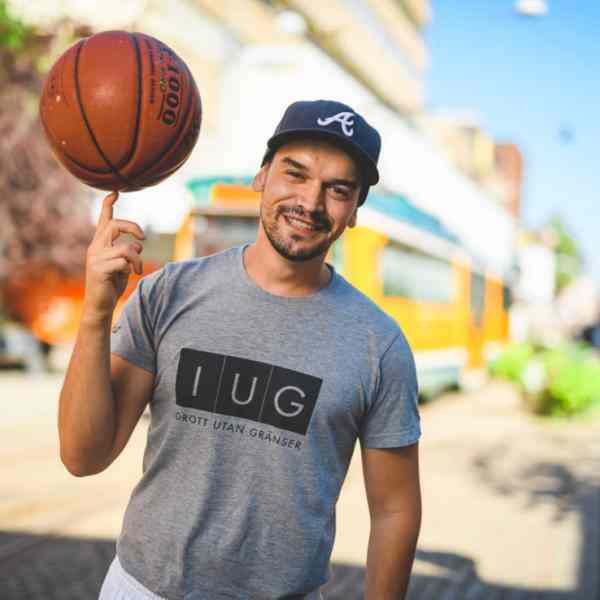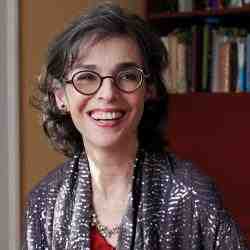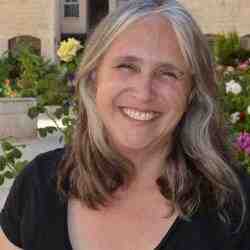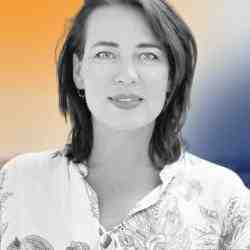Introduction
Through creating and uplifting new role models from diverse backgrounds, Admir fosters a new kind of society in Scandinavia – one that is more open to failure, participation, and optimism.
The New Idea
In 2010, Admir founded Idrott Utan Gränser (IUG), which translates to “Sports Without Borders” in English, with a mission to cultivate a generation of young people eager to take necessary risks and responsibility to shape their lives. Admir makes new use out of existing, underutilized spaces - including PE classrooms, playgrounds, and schoolyards during afterschool, weekend, and holiday hours – in order to promote active learning and new relationships across social groups. IUG young leaders facilitate activities in these spaces, thereby attracting youth from diverse backgrounds and ages to engage in unique combinations of sports, play, and hands-on role modeling. IUG young leaders, often from immigrant backgrounds and young in age as well, become a system of support and mentorship for the participants, in particular those from immigrant backgrounds.
Beyond its work directly with youth, Admir and his organization, IUG, use its approach with play and young people as a tool to encourage society at large to function more collaboratively. IUG’s methodology inside and outside of schools creates new interactions between local associations, schools, teachers, universities, governance, the business sector, and law enforcement, in ways previously missing from society. IUG enables diverse groups in Sweden – from the youth it engages all the way to the municipality leadership – to meet and change their views of each other in unexpected ways, unleashing new role models. Consequentially, IUG shifts the current conversation about integration of immigrants in a more positive direction through highlighting the potential of role models from diverse backgrounds.
IUG creates a win-win interactive program by building networks and personal relationships that break down the barriers in society so children and teenagers build positive experiences out of failures and have an opportunity to incubate their own ideas and develop their entrepreneurial skills. Since its inception in 2010, Admir has built IUG into a nationwide movement of thousands of young people, dozens of schools, corporations, and sports clubs, as well as teachers and municipality leadership all contributing and participating in its work with young people in Sweden.
The Problem
Diverse communities are increasingly segregated from native Swedish society, which can begin as soon as a newcomer arrives. Upon arrival, newcomers receive varying levels of benefits depending on their immigration status. This may include asylum, education, loans, and information about how a person can live and contribute to Swedish society. These are often not the social benefits that solve the full range of social challenges of new immigrants. Moreover, the government pays a high price for these offerings as well as for the increasing number of those who do not excel within rigid social structures, which can overlook individual strengths and potential. Furthermore, existing social work efforts to improve integration for new arrivals– both initiated by the state and civil society – target primarily immigrant areas rather than the neighborhoods where native Swedes live as well. This results in misconceptions about what diversity means – both among the immigrant and native Swedish populations. In fact, more than 40% of children with an immigrant background live in majority immigrant areas. Simultaneously 55% of all children with a Swedish background live in majority native Swedish neighbourhoods. This segregation manifests in the makeup of schools, too. In many schools, students come from only one or several social backgrounds. Native Swedish children, for example, can go through the school system with little contact with those from backgrounds other than their own, and vice versa.
Working with an outdated institutional framework that promotes assimilation and social conformity over diversity, society and schools in particular fail to draw upon the individual strengths and assets of children and teenagers. Moreover, the current national conversation about immigration in Sweden – fruitlessly oriented toward the problems rather than solutions – can easily further the gap between native Swedes and the various groups of new arrivals if not redirected more constructively. Despite the region’s comparatively open-door policies and resources for immigrants, new arrivals and, in particular, young people can struggle for years to pursue their aspirations and find their way as full economic citizens. They can easily become locked into their status quo, struggling to find the steps to shape their own futures. Young people – regardless of background – must build relationships with their peer groups, find their way at school, surmount bullying, build confidence, and identify role models during their school years.
Society as a whole, including schools, the business sector, municipalities, the education system, law enforcement, and local associations, lacks an integrated approach to fostering and developing today’s newly diverse Scandinavian context. Increased flexibility, tools, communication, and role modeling are required to build a generation of young people willing to take important risks and build sustainable relationships.
The Strategy
During IUG’s daily programming, IUG “young leaders” - role models taught in the IUG method - engage consistently with young people through peer-to-peer play and active learning. IUG leaders are offered hourly or long-term employment. They create physical meeting points during PE classes as well as after school such as holidays, weekends, and evenings. IUG leaders are trained how to facilitate activities in these new meeting points to create new shared experiences between diverse youth. IUG creates win-win benefits through implementing the program into the existing school and municipality system, simply by using current resources differently. Admir is proving how shared spaces and new, playful interactions, especially when facilitated by positive role models, can foster a new kind of society.
Aimed at responding to the needs of young people and in particular those from diverse backgrounds, Admir’s IUG strategy combines activity directly with the young people as well as engagement with a range of other groups in their social milieu. When entering a new city, IUG recruits local and national businesses to cover the start-up or expansion costs of the program, which reduces the costs for the program for the municipality and builds bridges between the private sector and generation of youth from diverse backgrounds.
After securing business partners, Admir approaches the school department within the local municipality to present the program, build relationships, and secure buy-in to introduce the program in that region. IUG temporarily offers the program for free to schools reluctant to join the IUG network initially. Universally, schools have come back to the municipality demanding its full implementation. The total cost for IUG to be implemented in an entire Swedish municipality is $80,000 USD per year, which includes the costs of organizing the program activities. The estimated benefit as a result of this preventive work is $383,000 USD. Conversely, an unemployed youth in Sweden costs society $2.3 million USD over the course of that person’s lifetime. Per year, Sweden pays $18 billion USD in costs to reduce social exclusion. Over five years, this sum is as large as Sweden’s national debt. Without a doubt, it is in each municipality’s interest to identify new ways to prevent youth from falling through the system.
IUG’s core method alters the current set up in many schools in which one PE teacher leads 30+ students, which easily excludes students, overwhelms teachers, and makes curricula repetitive. Instead, IUG young leaders join PE classes for youth ages 9-15. They train PE teachers in the IUG method, assist with planning and implementing lessons, and connect schools with sports clubs that support more diverse lessons over the year. This enables teachers to step into a stronger leadership role, creating space for them to address the needs of the classroom and observe their students. In addition, IUG leaders introduce youth (and the PE teachers) to new activities such as capoeira, golf, tennis, badminton, rugby and more, giving them the chance to experiment, step out of their comfort zone, and develop self-confidence. In order to break down the barriers between genders, social groups, or nationalities, the young leaders intentionally incorporate sports for all young people that have certain gender, class, or ethnicity associations, such as horseback riding or boxing.
In addition to the school hours, IUG creates meeting points beyond the school hours to ensure youth continue engaging in active play and trust building during weekends, after school, holidays and evenings. Admir has created an easy and playful alternative for these non-school hours, often the time when youth find trouble or illegal activity on the streets. IUG attracts children and teenagers between ages 6 and 15 to engage in organized play together with young people from all backgrounds. During these non-school hour meeting points, IUG young leaders continue the activities or sports taught in schools and introduce new activities and methods. They bring diverse schools together for sports and activity for the first time; for example, children from schools with majority immigrant students with children from schools with majority native Swedish students. This breaks down existing barriers between groups and offers play as a common medium. More recently, law enforcement such as the police force has started to join periodically during after-school and weekend IUG programming. They teach children and teenagers about a career in the police force and increase youth’s knowledge about law enforcement, which simultaneously affects how the police force perceives young people from diverse backgrounds.
IUG’s partnerships with local sports clubs break down barriers between social groups and diversify the play and sports in all IUG programming. Across Scandinavia, sports clubs face dwindling membership rates and an increasing disconnect from the school system, which Admir sees as a missed opportunity. Admir inspires the sports clubs to take part in IUG programs, giving them a structured entry point to reach more young people and increase their membership rates. The sports clubs become a pipeline of IUG young leaders as well. Since IUG began its work, sports club memberships have increased significantly in Sweden. IUG currently works actively with 14 sports clubs, each volunteering between 80-100 hours to the schools and after-school IUG activities.
In 2013, IUG launched Inkludera Flera, which employs select IUG young leaders full time who would otherwise risk exclusion due to segregation, racism, or limited access to employment. They are employed for a minimum of 24 months and also attend skills courses in sales, leadership and ways to enter the labor market, in addition to their roles in schools and after-school. Employment costs for Inkludera Flera are shared between IUG, private sector partners, the municipality and the state employment office – removing bureaucratic barriers between these groups. IUG has 21 young leaders operating IUG across Sweden. Three of whom are employed full time by IUG with the goal to expand this to seven by the end of 2014. IUG offers hourly pay to the remaining IUG leaders. IUG young leaders improve their chances for future employment through attaining hands-on experience in the workforce, often for the first time in their lives.
Behind the scenes of the programming in schools, IUG uses sports and the program itself to create new relationships and interactions within the municipality. IUG sets up an advisory group from the municipalities’ departments that generally do not engage as soon as they begin work in a new city. This group brings together the Departments of Education as well as Culture and Spare Time. Admir also includes other strategic individuals important for achieving the vision of the organization. He brings this group together on a regular basis to guide IUG as well as their individual and group roles in leading this change in their communities. Admir also sets up a second advisory group of teachers and young leaders who gather to guide IUG’s development in their schools and share learnings and challenges. The purpose of these advisory groups is to guide IUG, but more than that is to bridge these groups from the municipality and civil society and enable their development as role models. IUG gives them a concrete reason to collaborate, share, and grow.
In addition to current scaling efforts in Sweden, Admir is eager to spread the method internationally. IUG has received requests from the US, Vietnam and South Africa and plans to adopt a franchising model for scaling. In addition, IUG is currently working with teacher universities in Sweden to incorporate the IUG method into teacher trainings so its impact can be institutionalized across the education system. Admir sees the applications of IUG far beyond the sports and education sector alone. For example, expanding Inkludera Flera as well as Admir’s idea to create physical recreation centers precisely in geographic areas that lie between segregated areas. IUG currently operates in the large Swedish municipalities of Södertalje and Norrköping with imminent plans for expansion to additional schools in Södertalje and Norrköping as well as expansion to two new municipalities in 2014. Presently IUG operates in 31 schools (grades 4-9) in Sweden and works consistently and in a lasting way with 6,000 young people.
The Person
Born in Bosnia in 1983, Admir experienced war for half of his childhood. This led Admir to lead a life where staying persistent and creative became his most valuable assets. Everything in his life changed when his family was quickly forced to flee Bosnia. They received a letter from a distant relative in Sweden offering them asylum. Soon after, his family moved to the highly segregated area of Landskrona, Sweden, comprised of nearly 95% immigrants. Admir faced trauma upon arrival to Sweden. He was unable to eat for the first few months, he had to sleep with his parents due to all encompassing fear, and he had a remedial teacher at school.
As soon as Admir was old enough to know it, he saw the importance of strong social and emotional qualities. This became particularly true due to living in one of the most segregated areas of Sweden where the Swedish Democrats, or far-right leaning political party, is most prevalent. From an early age, Admir built his dreams based on whom he saw in his neighborhood. He remembers feeling that the options were limited to three: he could become a pizza baker, a social service worker, or a criminal. However, thanks to his father introducing him to sports, Admir was drawn in a positive direction. His father started a basketball club for immigrant young people in Landskrona to keep them off the streets. Admir was involved in the leadership of the organization at just 14 years old, which included coaching the teams. By 18, he was running the organization. It was then that Admir’s grew into his gift for leading and positively influencing people. Despite police escorts to each basketball club’s game (based on unfounded suspicion by Swedish law enforcement), Admir stayed strong as both a leader and a player. He realized that the challenges faced by young people have more to do with the structures of society than the experiences of young people alone.
Through sports and leading the basketball organization, Admir achieved a key personal insight that eventually led him to found IUG. This insight was that sports, among other positive influences such as family, friends and role models, gives a young person the sense that life is a corridor of opportunity. Admir built IUG to transform the mindset of young people who grow up in segregated areas and may not know life is a corridor let alone one of opportunity. Based on his own upbringing in Landskrona, he is driven by building a sustainable and supportive environment for children - both at home and at school. Ultimately he ensures that every person sees opportunities, dares to participate, dares to try, dares to say no when necessary, and is not afraid to fail.
In 2007, Admir began the foundational work of IUG in Norrköping, which evolved from a part-time activity to the organization that it is today. In 2010, he founded IUG as an independent organization. Leading the values promoted by IUG, Admir is not afraid of failure or trying. He deeply connects with young people, much to do with his similar upbringing to many of those a part of IUG. One can find Admir on one day in his basketball gear connecting with children on the sports field. On the next day, Admir is in a suit and tie carrying out meetings with the King of Sweden. This agile flexibility, creativity, and openness are what he inspires as a role model to thousands of youth.




